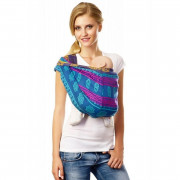Skills
Содержание:
- Programming[edit]
- Scotland — find out more about Picts and the Scottish Wars of Independence
- World History — learn the importance of world cultures from Africa to South America
- Which words and phrases should I teach first?
- Spark their imagination
- Ancient History — explore ancient civilisations through games and quizzes
- Using everyday situations
- You are here
- Your child’s interactive English learning adventure starts here
- Spark their imagination
- Shape their future with skills for a global world
- A rewarding learning experience that helps them go further
- Scotland — find out more about Picts and the Scottish Wars of Independence
- Establishing a routine
- British History — explore the different stages of British history through games and quizzes
- Programming blocks[edit]
- History[edit]
- Teaching grammar
- British History — explore the different stages of British history through games and quizzes
- World History — learn the importance of world cultures from Africa to South America
- Детям
- Чесночный багет
- Описание приготовления:
- Session 21
- Подготовка
Programming[edit]
- 2gether: The Series
- 3rd & Bird
- 4 O’Clock Club
- Ace Lightning
- The Adventures of Paddington Bear
- The Adventures of Sam & Max: Freelance Police
- The Adventures of the Young Marco Polo
- Absolutely Fabulous
- Albie
- All About Animals
- Alphablocks
- Anatole
- Andy Pandy
- Andy’s Wild Adventures
- Animal Stories
- The Animals of Farthing Wood
- Archibald the Koala
- Are You Afraid of the Dark?
- Arthur
- Artzooka!
- Atomic Betty
- Baby Jake
- Baby Looney Tunes
- Balamory
- Bananas in Pyjamas
- Barney
- The Basil Brush Show
- Be the Creature
- Bear Behaving Badly
- Beauty and the Geek
- Being Ian
- Belfry Witches
- Bernard
- The Best
- Best in Australia
- Big Babies
- Big Bear and Squeak
- Big Cook, Little Cook
- The Big Knights
- Big Wolf on Campus
- Bill and Ben
- Binka
- Blackadder
- Blazing Dragons
- Bob the Builder
- Boj
- Boogie Beebies
- Brady’s Beasts
- Brat Camp
- Buzz and Tell
- Byker Grove
- Caitlin’s Way
- The Call
- Canimals
- Captain Abercromby
- Cavegirl
- CG Kids
- Changing Rooms
- Charlie and Lola
- Chorlton and the Wheelies
- Clangers
- Connie the Cow
- Creature Comforts
- Creepy Crawlies
- Custer’s Last Stand-up
- The Cuties
- D’Myna Leagues
- Dance Academy
- Dawson’s Creek
- Dead Gorgeous
- Deadly 360
- Deadly 60
- Deadly Mission Madagascar
- Deadly Nightmares of Nature
- Deadly Pole to Pole
- Deadly Top 10
- Degrassi High
- Degrassi Junior High
- Digby Dragon
- DuckTales
- Dinosapien
- Dinosaur Detectives
- Doctor Who
- Dogs with Jobs
- Don’t Blame the Koalas
- Doodlez
- Dude, That’s My Ghost!
- Eckhart
- Ed and Oucho’s Excellent Inventions
- The Eggs
- Emily of New Moon
- Emma
- Escape from Scorpion Island
- Eureka TV
- Extreme Animals
- Factomania
- The Famous Jett Jackson
- Fierce Earth
- FightBox
- Fimbles
- Florrie’s Dragons
- Fraggle Rock
- Freefonix
- French and Saunders
- Fluffy Gardens
- Garth and Bev
- Gawayn
- Gazoon
- The Gees
- The Genie from Down Under
- George Shrinks
- Girls in Love
- Go Jetters
- The Graham Norton Show
- Grange Hill
- Groove High
- Hairy Jeremy
- Hank Zipzer
- Harry and Toto
- Hey Duggee
- The Hive
- Home on Their Own
- Horrible Histories
- Horrible Science
- Humf
- Hyperdrive
- I Am Not an Animal
- I Can Cook
- I Was a Sixth Grade Alien
- Igam Ogam
- In a Heartbeat
- In the Night Garden…
- Inside Life
- It’ll Never Work?
- Ivick von Salza
- Jacob Two-Two
- Jar Dwellers SOS
- Jeopardy
- Joan of Arcadia
- Joe and Jack
- The Jungle Bunch
- Just One Bite
- K-9
- Kate & Mim-Mim
- Kerwhizz
- KidsWorld Sports
- King Arthur’s Disasters
- The Klumpies
- The Koala Brothers
- Kratts’ Creatures
- Lah-Lah’s Adventures
- Lark Rise to Candleford
- The Legend of Dick and Dom
- Leon
- Leonardo
- The Life of Birds
- The Life of Mammals
- Lightning Point
- Lilly the Witch
- Little Britain
- Little Princess
- Little Robots
- Lockie Leonard
- Lunar Jim
- M.I. High
- Madison
- The Magic School Bus
- The Magician’s House
- Magical DoReMi
- Maid Marian and Her Merry Men
- The Make Shift
- Me and My Monsters
- Miami 7
- The Mystery Files
- The Mighty Boosh
- Mighty Machines
- Minuscule
- Missy Milly
- Mister Maker
- Mofy
- Molang
- Mona the Vampire
- Moone Boy
- Monty
- Mortified
- Mr. Bean
- Mr. Bean: The Animated Series
- Mr Bloom’s Nursery
- My Hero
- My Parents Are Aliens
- Naked Chef
- Naomi’s Nightmares of Nature
- Natural Born Hunters
- Naturally, Sadie
- Nelly and Nora
- The New Adventures of Figaro Pho
- Nico Can Dance
- Nina and the Neurons
- No Sweat
- Noonbory and the Super Seven
- Numberjacks
- Nuzzle and Scratch
- Oddbods
- Officially Amazing
- Olive the Ostrich
- Oliver’s Twist
- Olliver’s Adventures
- Our Hero
- Out There
- Paddington
- The Paradise
- Party Mamas
- Penny Crayon
- Pingu
- Pipsqueak’s Planet
- Planet Earth
- Polka Dot Shorts
- Postman Pat
- Popular Mechanics for Kids
- Prank Patrol
- The Queen’s Nose
- Rank the Prank
- Rastamouse
- Raven
- Ready Jet Go!
- Ready or Not
- The Really Wild Show
- Red Dwarf
- Reel Late Movies
- Ricky Sprocket: Showbiz Boy
- Robin Hood
- Robin Hood: Mischief in Sherwood
- RoboRoach
- The Roly Mo Show
- Rooms that Rock
- Rosie and Jim
- Rotten Ralph
- Round the Twist (2004-2005)
- Roy
- The Saddle Club
- Sadie J
- The Sarah Jane Adventures
- The Secret Adventures of Jules Verne
- The Secret Show
- Serious
- Shaun the Sheep
- The Shiny Show
- Shoebox Zoo
- Show Me Show Me
- Silverwing
- The Sleepover Club
- Smack the Pony
- The Sorcerer’s Apprentice
- Sorry I’ve Got No Head
- Space Cases (2001-2004)
- Spider!
- Spot Bots
- Stacey Stone
- Stig of the Dump
- Stitch Up!
- Strange Days at Blake Holsey High
- The Strangerers
- Stuff
- Sumo Mouse
- Super Human Challenge
- Surprise! It’s Edible Incredible!
- Sweet Tweets
- Tales of the Riverbank
- Tarzan
- Tattle Tails
- Teletubbies
- Theodore Tugboat
- Thomas & Friends
- Thunderbirds
- Timmy Time
- Top of the Pops
- Tots TV
- Trapped!
- Tree Fu Tom
- Trigger Happy TV
- The Tumblies
- Tweenies
- Two Pints of Lager and a Packet of Crisps
- The Vicar of Dibley
- Victor & Maria
- Viva S Club
- Walk on the Wild Side
- The Weakest Link
- What About Mimi?
- What Not to Wear
- Who Let the Dogs Out?
- Who Wants to Be a Superhero?
- Wild and Weird
- William’s Wish Wellingtons
- Woolly and Tig
- The Wombles (2001-2005)
- The Wonder Years
- The Worst Witch
- Yakkity Yak
- Yam Roll
- Yoho Ahoy
- Yoko
- Young Dracula
- The Young Ones
- ZingZillas
- Zoboomafoo
- Zoo Diaries
- Zoobabu
Scotland — find out more about Picts and the Scottish Wars of Independence
Enter the world of the Vikings
Tour the fort and start an invasion
Join Callum as he tries to find his clan
Burgh Life
Learn about life in the time of Mary, Queen of Scots
- Scotland: Skara Brae — Find out more about this ancient village in Orkney
- Scotland: Scots and Picts — Explore more about these people
- Scotland: Romans in Scotland — Tour the fort and start an invasion
- Scotland: Vikings in Scotland — Enter the world of the Vikings
- Scotland: Scottish War of Independence — Take the tour of independence
- Scotland: Burgh Life in Mary, Queen of Scots time
- Scotland: Jacobites — Can you put a Stuart king on the throne?
- Scotland: Silver Jacobite canteen — Who owned the 18th century picnic set?
- Scotland: Highland Clearances — Join Callum as he tries to find his clan
- Scotland: Robert Burns Cravat Pin — Find out more about this famous man
- Scotland: The Iolaire Bell — What happened to the ship The Iolaire
- Scotland: Scotland during World War Two — Enter as a WW2 spy
- Scotland: Marianne Grant’s trunk — Found out how Marianne survived WW2
- Scotland: In the 60s — Join Ham as he explores the 60s
World History — learn the importance of world cultures from Africa to South America
How did the Aztecs create the serpent?
Learn each of the songs and read the stories
Join Professor Indus as he explores the Indus Valley
Sutton Hoo Helmet
Find out more about this ancient treasure
- Africa: Benin Plaque — Which image shows the king?
- China: Tang Tomb Figures Who was the first Emperor of China?
- Egypt: Rosetta Stone — How were Egyptian hieroglyphs deciphered?
- Egypt: Mummy of Hornedjitef — How do you make a mummy?
- Egypt: Statue of Ramesses II — Who was Ramesses II?
- England: The Hoxne Hoard — When did pepper arrive in Britain?
- England: Sutton Hoo Helmet — Find out more about this ancient treasure
- Easter Island: Easter Island Statue Who made these giant statues?
- Greece: Heroes of Troy — Learn each of the songs and read the stories
- India: Pieces of Eight — Who were the British East India Company?
- India: Durer’s Rhinoceros — Who was Albrecht Dürer?
- India: Indus Valley — Join Professor Indus as he explores the Indus Valley
- Italy: Emperor Augustus — The first Roman emperor
- Mesopotamia: Royal Game of Ur — When was the board game made?
- South America: Double Headed Serpent — Made by the Aztecs
- General: GCSE Bitesize — Choose the History course you are studying
Which words and phrases should I teach first?
Consider your child’s interests and personality when deciding which topics to teach, and let your child help you to choose. You may like to start with some of these topics:
- numbers (1–10; 10–20; 20–100)
- colours
- adjectives (e.g. big, small, tall, happy, sad, tired)
- the body
- toys
- clothes
- animals (e.g. pets, farm animals, wild animals)
- food
You can find lots of fun activities on a huge range of topics on LearnEnglish Kids.
It is also important for your child to get used to ‘English time’ language, so use the same phrases with your child each time, e.g. ‘It’s English time! Let’s sit down. Which song shall we start with today?’ Children will soon pick up phrases such as please; thank you; Can I have …?; Where is …?; Point to …; What colour is it?; It’s …; I like …; I don’t like …
Spark their imagination
With us, your child will learn more than just the English language. They’ll be able to express themselves with confidence that goes beyond their language skills.
Your child will get the most out of their English learning experience with a combination of:
- lively classes with a specialist teacher, who will encourage their curiosity and keep them motivated to practise speaking English and enjoy learning with classmates of a similar age
- interactive independent study, set by your child’s teacher to prepare them for the lesson – all in a safe, easy-to-use online learning environment.
You will also have access to your child’s personal dashboard. Together you can track their progress, celebrate their successes and see where they are on their learning journey.
Ancient History — explore ancient civilisations through games and quizzes
Prepare the body of Ramose, officer to the king, for burial
Complete the construction of the pharaoh’s tomb
Acquire the skills to keep warm, fed and clothed
Ancient Greece
Begin discovering ancient Greece
- Egyptians: Mummy Maker Game — Prepare the body of Ramose for burial
- Egyptians: Pyramid Challenge — Build the pharaoh’s tomb
- Greeks: — Begin discovering ancient Greece
- Romans: — Learn about the world of ancient Rome
- Romans: Death In Rome — You have until dawn to catch a killer
- Romans: Gladiator Game — Prepare a gladiator for battle
- Iron Age: Iron Age Life — Acquire the skills to survive
- Anglo Saxons: Learn about the Angle, Saxon and Jute invaders of Britain
- Anglo Saxons: Coin Game — Identify six coins from the era
- Vikings: Learn about the Viking invaders from Scandinavia
- Vikings: Viking Quest — Build a ship, loot a monastery and claim your prize
- General: Ancient Objects Game — Match the artefacts to the time period
- General: Dig Deeper Quiz — Test your knowledge of ancient history
- General: Divers Quest — Explore the perils of the deep and find treasure
- General: Hunt the Ancestor — Complete your dig before the developers arrive
Using everyday situations
The advantage of teaching English at home is that you can use everyday situations and real objects from around the house to practise the language naturally and in context. For example:
- Talk about clothes when your child is getting dressed, or when you are sorting laundry (‘Let’s put on your blue socks’, ‘It’s Dad’s T-shirt’, etc.).
- Practise vocabulary for toys and furniture when you are helping your child to tidy their bedroom (‘Let’s put your teddy bear on the bed!’, ‘Where is the blue car?’).
- Teach food vocabulary when you are cooking or going shopping. When you go to the supermarket, give your child a list of things to find (use pictures or words depending on their age). Revise the vocabulary when you put the shopping away at home.
You are here
Home Parents
Discover our English courses for purchase for ages 6–17
Find out more
Your child’s interactive English learning adventure starts here
Welcome to our world of English … a place where confidence grows.
Discover our English courses for children: Primary Plus for ages 6–12 and Secondary Plus for ages 12–17.
Our courses are designed by English language learning experts. We have over 80 years’ experience of teaching English. Classes are taught by highly trained and experienced teachers who bring energy and expertise to every class.
Spark their imagination
With us, your child will learn more than just the English language. They’ll be able to express themselves with confidence that goes beyond their language skills.
Your child will get the most out of their English learning experience with a combination of:
- lively classes with a specialist teacher, who will encourage their curiosity and keep them motivated to practise speaking English and enjoy learning with classmates of a similar age
- interactive independent study, set by your child’s teacher to prepare them for the lesson – all in a safe, easy-to-use online learning environment.
You will also have access to your child’s personal dashboard. Together you can track their progress, celebrate their successes and see where they are on their learning journey.
Shape their future with skills for a global world
Our classes focus on practical skills and interactive exercises. Each module is brought to life with activities, team projects and high-quality materials based on real-world topics that children and teens are really interested in.
Your child will improve their creativity, leadership and collaboration skills that open up a world of possibilities.
A rewarding learning experience that helps them go further
At home your child will improve their language skills with engaging, high-quality online learning resources that keep them motivated.
Your child will have the space to improve their English reading, writing and listening skills in their own time, as they prepare for their next class.
The result? They will feel more confident in class and have more time to work on their speaking skills during the class time with their teacher and classmates. A love of learning English will last a lifetime.
Primary Plus and Secondary Plus are available in British Council teaching centres and our partner schools in many major cities around the world.
Discover our English courses for purchase for ages 6–17
Find out more
Scotland — find out more about Picts and the Scottish Wars of Independence
Enter the world of the Vikings
Tour the fort and start an invasion
Join Callum as he tries to find his clan
Burgh Life
Learn about life in the time of Mary, Queen of Scots
- Scotland: Skara Brae — Find out more about this ancient village in Orkney
- Scotland: Scots and Picts — Explore more about these people
- Scotland: Romans in Scotland — Tour the fort and start an invasion
- Scotland: Vikings in Scotland — Enter the world of the Vikings
- Scotland: Scottish War of Independence — Take the tour of independence
- Scotland: Burgh Life in Mary, Queen of Scots time
- Scotland: Jacobites — Can you put a Stuart king on the throne?
- Scotland: Silver Jacobite canteen — Who owned the 18th century picnic set?
- Scotland: Highland Clearances — Join Callum as he tries to find his clan
- Scotland: Robert Burns Cravat Pin — Find out more about this famous man
- Scotland: The Iolaire Bell — What happened to the ship The Iolaire
- Scotland: Scotland during World War Two — Enter as a WW2 spy
- Scotland: Marianne Grant’s trunk — Found out how Marianne survived WW2
- Scotland: In the 60s — Join Ham as he explores the 60s
Establishing a routine
Establish a routine for your English time at home. It is better to have short, frequent sessions than long, infrequent ones. Fifteen minutes is enough for very young children. You can gradually make sessions longer as your child gets older and their concentration span increases. Keep the activities short and varied in order to hold your child’s attention.
Try to do certain activities at the same time every day. Children feel more comfortable and confident when they know what to expect. For example, you could play an English game every day after school, or read an English story with your children before bedtime. If you have space at home, you can create an English corner where you keep anything connected to English, for example books, games, DVDs or things that your children have made. Repetition is essential – children often need to hear words and phrases many times before they feel ready to produce them themselves.
British History — explore the different stages of British history through games and quizzes
Find out about Florence Nightingale and others
Run a city at the height of the industrial revolution
Discover the tactics and try putting them into practice
Walk through history
Walk into the past and spot the odd items
- Normans: The Battle of Hastings Game — Re-enact the Battle of Hastings
- Normans: Hands on History — Build your own castle and other activities
- Normans: Church Interiors Game Know your transepts from your apses?
- Normans: Paint the cathedral — Restore Wells cathedral
- Tudors: Elizabethan Spying Game — Crack Mary’s code to uncover the plot
- Tudors: Tudors Dressing Up — Dress the Tudor lady
- Civil War & Revolution: Battlefield Academy: Refight Trafalgar!
- Civil War & Revolution: The Battle of Waterloo Game
- Victorians: Who Wants to Be a Cotton Millionaire? Game
- Victorians: Muck and Brass — Run a city during the Industrial Revolution
- Victorians: Whose House? — Match up eight famous characters with their rooms
- Victorians: Women’s Rights Quiz — Test your knowledge
- Victorians: Children of Victorian Britain — Learn how children survived
- World War One: People’s stories — Read and listen to stories of the war
- World War Two: Children of WW2 — Learn how children coped during WW2
- World War Two: School Radio WW2 — Listen to clips through the ages
- World War Two: SOE Quiz: Destination D-Day — Complete a sabotage mission
- World War Two: The Battle of the Atlantic Game — Defeat the U-boats
- General: GCSE Bitesize — Choose the History course you are studying
- General: Famous People — Find out about Florence Nightingale and others
- General: Dynamo History — Take a step back in time with Dynamo
- General: Hands On History — Discover history on your doorstep
- General: The Beauty of Maps — Lesson plans for the programme
- General: The Roots of English Game — Discover the origins of words
- General: Walk through History — Take a walk into the past
- General: Weapons through time Test your military knowledge with this quiz
- General: Battlefield Academy — Defeat the computer in four battles
- General: Primary Programme Guide — View the BBC TWO schedule
Programming blocks[edit]
CBeebies logo.
- CBeebies — «CBeebies» was a programming block aimed at preschoolers that airs weekdays from 8:30 a.m. to 3:30 p.m. and weekends from 8:30 a.m. to 10:30 a.m. Eastern Time. It debuted on May 13, 2011, when Knowledge Network Corporation took ownership of the channel, when BBC Kids was changed from an ad-supported service to a commercial-free service.
- Cartoon Afternoons — «Cartoon Afternoons» was a programming block dedicated to animated series that aired weekdays from 3:30 to 7:00 p.m. Eastern Time.
- Drama at 8 — «Drama at 8» was a primetime block featuring various British dramas, such as Emma and Moone Boy. It aired every weeknight at 8:00 p.m. Eastern Time.
BBCK’s logo.
- BBCK — «BBCK» was a program block aimed towards both preteen and teenage audiences that debuted on April 3, 2006, while BBC Kids was still under the ownership of Alliance Atlantis and BBC Worldwide, airing nightly from 9:00 p.m. to 6:00 a.m. Eastern Time. With the block’s launch, the channel also launched a separate website, making it appear as though BBCK was a separate channel similar to the former agreement between US preschool channel Noggin and the block The N In early 2008, when Canwest Global and Goldman Sachs purchased Alliance Atlantis, the BBCK website was shut down; however, the block itself remained until after May 12, 2011, when ownership changed hands from Shaw Media to Knowledge Network Corporation and when BBC Kids was changed from an ad-supported service to a commercial-free service.
- The Spot — From its launch in 2001 to May 12, 2011, BBC Kids aired a programming block called «The Spot», which aired weekdays from 12:00 p.m. to 9:00 p.m. and weekends from 6:00 a.m. to 2:00 p.m. Eastern Time. «The Spot» focused on programming aimed at preteen audiences. The block was discontinued after May 12, 2011 when the channel’s ownership changed hands from Shaw Media to Knowledge Network Corporation.
History[edit]
Launchedit
In November 2000, Alliance Atlantis was granted approval by the Canadian Radio-television and Telecommunications Commission (CRTC) to launch BBC Kids, described as «a national English language Category 2 specialty television service devoted to top-quality educational and entertaining programming for children and youth (ages 2-17). It will feature programming primarily from the UK and around the world. 65% of the programming will target children ages 2 to 11, the majority of which will target 6 to 11 years old and 35% will target youth ages 12 to 17.»
BBC Kids’ original logo, used from November 5, 2001 to April 30, 2016.
The channel was launched on November 5, 2001 as a joint venture between Alliance Atlantis and BBC Worldwide. The channel primarily aired programs from the UK, from which the vast majority were sourced from the BBC and its affiliated channels; however, throughout its history under the ownership of Alliance Atlantis and its subsequent incarnations under Canwest and Shaw, select programs were sourced from different countries and other British broadcasters such as Tots TV, Mr. Bean: The Animated Series, and The Sleepover Club. In addition to British programs, the channel also broadcast Canadian programs, as required by the CRTC.
On January 18, 2008, a joint venture between Canwest and Goldman Sachs Capital Partners known as CW Media, acquired control of BBC Kids through its purchase of Alliance Atlantis’ broadcasting assets, which were placed in a trust in August 2007.
On October 27, 2010, the channel’s ownership changed once again as Shaw Communications added control of BBC Kids as a result of its acquisition of Canwest and Goldman Sachs’ interest in CW Media.
It was revealed through regulatory documents on December 22, 2010 that Shaw Media was in the process of selling the channel to an unknown third party. On January 17, 2011, the Government of British Columbia’s Knowledge Network Corporation announced it had finalized an agreement to purchase the channel through a subsidiary called Knowledge-West Communications Corporation from Shaw Media, while BBC Worldwide would retain its interest in the service.
Knowledge decided to change BBC Kids from an ad-supported service to a commercial-free service, and relocate its old headquarters from Toronto, Ontario to its new headquarters in Burnaby, British Columbia. The transaction required CRTC approval, which was granted on April 29, 2011.
On May 1, 2016, BBC Kids updated its logo to reflect its 15th anniversary and to coincide with its new rebranding.
Closureedit
On October 2, 2018, a joint statement from Knowledge Network and BBC announced the channel would cease operations on New Year’s Eve 2018. No reasoning for the closure was outlined in their statement. President and CEO of Knowledge Network Rudy Buttignol explained in a subsequent interview that «the decision is due to a challenging regulatory environment facing independent channels», and that BBC Kids was successful in its major objective of gaining additional revenue for Knowledge Network, which among other benefits for the network helped finance an HD version of that channel. Knowledge Network plans to keep working with the BBC on future content deals, and its children’s block Knowledge Kids are to continue airing shows originally commissioned for BBC Kids. On January 10, 2019, The CRTC revoked the
license for the channel.
Teaching grammar
With younger children, there is no need to explicitly teach grammar rules, but instead get them used to hearing and using different grammatical structures in context, for example ‘have got’ when you are talking about someone’s appearance, or ‘must/mustn’t’ when talking about their school rules. Hearing the grammar being used in context from an early age will help your child to use it naturally and correctly when they are older.
For older children, you can use the grammar practice section on LearnEnglish Kids. Videos, quizzes and games help kids to learn in a fun, relaxed way.
It can be very useful for older children to teach their siblings or other family members. Explaining how to use grammar to someone else helps you to master it yourself.
British History — explore the different stages of British history through games and quizzes
Find out about Florence Nightingale and others
Run a city at the height of the industrial revolution
Discover the tactics and try putting them into practice
Walk through history
Walk into the past and spot the odd items
- Normans: The Battle of Hastings Game — Re-enact the Battle of Hastings
- Normans: Hands on History — Build your own castle and other activities
- Normans: Church Interiors Game Know your transepts from your apses?
- Normans: Paint the cathedral — Restore Wells cathedral
- Tudors: Elizabethan Spying Game — Crack Mary’s code to uncover the plot
- Tudors: Tudors Dressing Up — Dress the Tudor lady
- Civil War & Revolution: Battlefield Academy: Refight Trafalgar!
- Civil War & Revolution: The Battle of Waterloo Game
- Victorians: Who Wants to Be a Cotton Millionaire? Game
- Victorians: Muck and Brass — Run a city during the Industrial Revolution
- Victorians: Whose House? — Match up eight famous characters with their rooms
- Victorians: Women’s Rights Quiz — Test your knowledge
- Victorians: Children of Victorian Britain — Learn how children survived
- World War One: People’s stories — Read and listen to stories of the war
- World War Two: Children of WW2 — Learn how children coped during WW2
- World War Two: School Radio WW2 — Listen to clips through the ages
- World War Two: SOE Quiz: Destination D-Day — Complete a sabotage mission
- World War Two: The Battle of the Atlantic Game — Defeat the U-boats
- General: GCSE Bitesize — Choose the History course you are studying
- General: Famous People — Find out about Florence Nightingale and others
- General: Dynamo History — Take a step back in time with Dynamo
- General: Hands On History — Discover history on your doorstep
- General: The Beauty of Maps — Lesson plans for the programme
- General: The Roots of English Game — Discover the origins of words
- General: Walk through History — Take a walk into the past
- General: Weapons through time Test your military knowledge with this quiz
- General: Battlefield Academy — Defeat the computer in four battles
- General: Primary Programme Guide — View the BBC TWO schedule
World History — learn the importance of world cultures from Africa to South America
How did the Aztecs create the serpent?
Learn each of the songs and read the stories
Join Professor Indus as he explores the Indus Valley
Sutton Hoo Helmet
Find out more about this ancient treasure
- Africa: Benin Plaque — Which image shows the king?
- China: Tang Tomb Figures Who was the first Emperor of China?
- Egypt: Rosetta Stone — How were Egyptian hieroglyphs deciphered?
- Egypt: Mummy of Hornedjitef — How do you make a mummy?
- Egypt: Statue of Ramesses II — Who was Ramesses II?
- England: The Hoxne Hoard — When did pepper arrive in Britain?
- England: Sutton Hoo Helmet — Find out more about this ancient treasure
- Easter Island: Easter Island Statue Who made these giant statues?
- Greece: Heroes of Troy — Learn each of the songs and read the stories
- India: Pieces of Eight — Who were the British East India Company?
- India: Durer’s Rhinoceros — Who was Albrecht Dürer?
- India: Indus Valley — Join Professor Indus as he explores the Indus Valley
- Italy: Emperor Augustus — The first Roman emperor
- Mesopotamia: Royal Game of Ur — When was the board game made?
- South America: Double Headed Serpent — Made by the Aztecs
- General: GCSE Bitesize — Choose the History course you are studying
Детям
Если вам сложно заниматься с ребёнком, не вините себя — это нормально! Главное, что вы можете сделать, — это обеспечить учащемуся практику языка и заряд мотивации. С этим вам помогут детские YouTube‑каналы, развивающие игры и другие полезные ресурсы.
1. Pinkfong! Kids’ Songs & Stories
YouTube‑канал с короткими мультфильмами и весёлыми песенками на разные темы (есть субтитры). Это прекрасный вклад в создание языковой среды дома для самых маленьких. Ребёнок может одновременно танцевать и подпевать, учиться читать самостоятельно и слушать материалы вместе с вами перед сном.
Перейти →
2. Art for Fids Hub
Короткие уроки рисования на английском. Художественное творчество полезно для ребёнка само по себе — почему бы не совместить его с практикой иностранного языка? Это может быть прекрасным семейным тимбилдингом или самостоятельными занятиями даже для самых маленьких.
Перейти →
3. TED Education
Увлекательные обучающие видео для наиболее пытливых подрастающих эрудитов. Ролики от самых простых до сложных: выбирайте подходящий уровень и не забывайте про субтитры, а также возможность снижать и повышать скорость воспроизведения.
Перейти →
4. Smithsonian Institute
Целый список развивающих игр для детей на английском языке от Смитсоновского института. Выбирайте самые интересные и запускайте прямо в браузере.
6. National Geographic
Кладезь полезного контента для любителей природы: игры и короткие видео, которые позволят узнать больше о животных, растениях и космосе. Правда, требуется довольно хорошее знание языка.
7. San Diego Zoo Kids
Увлекательный образовательный сайт от знаменитого зоопарка Сан‑Диего. Ещё один нескучный способ познакомиться с названиями животных и местами их обитания на английском.
Чесночный багет
Рецепт приготовления чесночного багета в хлебопечке. Приготовленный в хлебопечке багет с чесноком получается очень вкусным, попробовать его захочется каждому.
Описание приготовления:
Приготовленный по данному рецепту чесночный багет очень понравится любителям хлеба со вкусом чеснока. С таким багетом очень хорошо кушать борщ.
Ингредиенты
Чеснока — 3 Зубчика
Дрожжи сухие — 1 Чайная ложка
Соль — 1,5 Чайных ложки
Молока — 100 Миллилитров
Сахар — 1 Ст. ложка
Масло сливочного — 30 Грамм
Вода — 140 Миллилитров
Муки — 350 Грамм
Количество порций: 8
Инструкция приготовления
Шаг 1
1. Немного сливочного масла растопим в горячей воде. Добавляем в него сахара и соли. В контейнер переливаем его тогда, когда оно немного остынет.
Шаг 2
2. Смешиваем муку и дрожжи. Затем высыпаем в контейнер. Программа, которую мы выбираем – «Багеты». Включаем кнопкой «Старт».
Шаг 3
3. Тем временем на мелкую терку натираем чеснок. Тесто достаем из контейнера после сигнала. На четыре части разделяем тесто. В форму овальной лепешки разминаем кусочки теста, , к центру подгибаем края, и раскатываем еще раз, придаем овальную форму тесту, хорошо разминая его руками. Раза три-четыре эту процедуру повторяем.
Шаг 4
4. Последний раз, когда скручиваем багет, смазываем края лепешки измельченным чесноком (для этого можно использовать кисточку). Если есть желание, смешиваем чеснок с оливковым маслом.
Шаг 5
5. В формы раскладываем багеты, полотенцем накрываем, и минут двадцать даем постоять. На багетах делаем три-четыре надреза (на искосок), смочим водой и ставим в хлебопечку.
Шаг 6
6. По окончании работы программы «Багеты» перекладываем их на доску, немного сбрызгиваем водой, полотенцем накрываем и даем им немного постоять.
Рекомендуемые товары
Session 21
Подготовка
Операции по удалению шейки матки проводятся по показаниям врача-гинеколога, когда у женщины наблюдаются такие серьезные патологии, как эрозия, неинвазивный рак, хронический эндоцервицит. Перед хирургическим вмешательством необходимо пройти полное медицинское обследование, т.е. сдать анализы крови (общий, биохимический) и мочи, а также биопсию и кольпоскопию. При необходимости больной назначается ЭКГ, УЗИ органов малого таза, исследование мазков на наличие атипических клеток и другие дополнительные исследования.
Подготовка к операции начинается за несколько дней до назначенной даты, и если у пациентки наблюдается хронический эндоцервицит, то проводится консервативное лечение: влагалищные ванночки, спринцевания и тампоны с применением лекарственных растворов.
Непосредственно перед самой процедурой из шеечного канала удаляется слизь с помощью зонда, обернутого стерильной марлей либо ватой, предварительно смоченной 10-процентным раствором соды. Затем шеечный канал смазывается йодной настойкой. Из подготовительных манипуляций также следует отметить санитарную обработку: удаление волос с лобковой области, гигиенический душ и очистку кишечника (в течение 2-х дней пациентка принимает слабительное).
На сегодняшний день врачи прибегают к нескольким методам выполнения операций по ампутации шейки матки:
- холодно-ножевая конизация;
- конусовидная электроэксцизия;
- ультразвуковая ампутация;
- криодеструкция;
- радиохирургический метод;
- лазерная ампутация.








